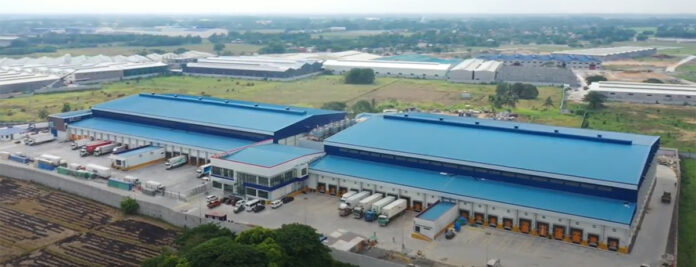
-
Royale Cold Storage looks to become the Philippines’ biggest cold storage provider in the next two years, doubling capacity of 47,000 pallet positions
-
Germany-based AEB to provide warehouse management system that will optimize operations
-
The WMS gives RCS visibility over shipment status, quality management, inventory, packing and dispatch of goods, making operations more seamless and less error-prone
Royale Cold Storage (RCS) aims to become the biggest cold storage provider in the Philippines in the next two years through automation, capacity increase and service expansion.
It has tapped AEB, a Germany-based cloud software specialist in global trade, logistics and IT, to provide the warehouse management system that will support optimized operations.
RCS, in a statement, said it hopes to raise its capacity by doubling its 47,000 pallet positions in the next two years.
RCS chief executive officer Ferdinand Tongson said the shift to automation “will enable us to do real-time stock updating and ensure faster transactions in, out and within the warehouse, boosting efficiency across all our processes.”
The cold chain WMS of AEB gives RCS visibility over shipment status, quality management, inventory, packing and dispatch of goods, making operations more seamless and less prone to errors.
RCS said automating warehouse management makes operations more cost-efficient, more capable of following safe distancing protocols, and more able to optimize resources. It stressed the importance of optimizing operations and ensuring operational excellence to improve customer experience for all its partners and customers.
The cold chain WMS also helps RCS standardize operations and other cold chain processes such as blast freezer receiving, computer-assisted replenishment control, and stock removal strategies.
Tongson said their cold storage facility can handle different temperatures ranging from +5°C to -20°C as well as different types of vaccine. The company expects the vaccines to arrive in the next two to three months.
Quick-service restaurants are among RCS’ major clients. Tongson said the cold chain WMS has helped the company in its food and safety management, particularly in managing items not compatible and in consolidating compatible items, which is vital in allergen management.
“Through the AEB WMS, we can seamlessly customize the system to manage these different types of items and with fewer errors,” he added.
With the local food industry continuing to undergo changes and the pandemic further heightening food safety and security concerns, RCS said the future of better food handling starts with stronger integration of cold storage practices.
Changing consumer needs and market trends—including the growing demand for food items with a shorter shelf life, just-in-time food deliveries and easy-to-prepare or ready-to-eat food—mean industry players must optimize operations and reinvent strategies to stay competitive, RCS noted.
For his part, AEB Asia Pacific general manager Frans Kok said: “The one thing the pandemic has taught us is that regardless of the industry, office work can be done almost anywhere. As the Philippines positions itself as one of the top offshore service providers in Asia embracing a 24-hour economy, we see more restaurants in the future providing 24-hour services to customers who want quality food anytime of the day. Of course, the cold storage industry is one of those key elements that will enable the food industry to provide quality service.”




